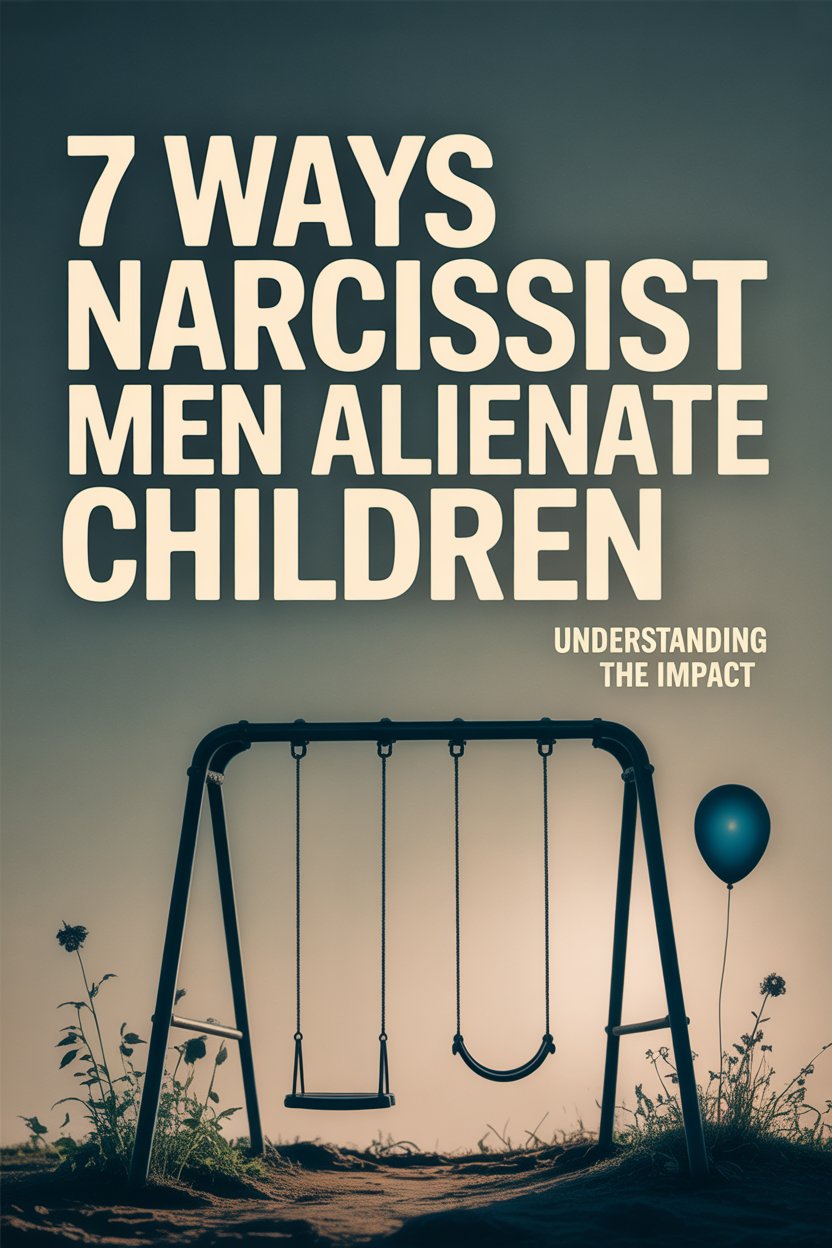Narcissistic men: legends in their own minds, magicians at making everything about themselves, and—unfortunately—experts at turning family life into an emotional obstacle course.
While their partners often feel the brunt of their drama, kids can get caught in the crossfire in ways that shape their emotional health for years.
If you’ve ever wondered why your child seems distant or confused after a weekend with Dad, you’re not imagining things.
Here’s how narcissist men manage to alienate their children—sometimes without even trying.
1. Turning Every Conversation Into a Monologue
Children need to feel seen and heard. With narcissist men, it’s a bit like yelling into a canyon and waiting for your own echo.
When kids attempt to share their feelings, stories, or dreams, Dad finds a way to hijack the spotlight.
Little Emily wants to talk about her ballet recital? Suddenly, Dad’s reminiscing about his own “glory days” on the football team (never mind he sat the bench).
If a child expresses worry, Dad counters with a story about the time he triumphed over adversity—cue dramatic music.
This conversational dominance leaves children feeling invisible. They start believing their words don’t matter, so they stop sharing. Over time, the emotional distance grows wider than the Grand Canyon.
Want to curb the monologue madness? When your child tries to open up, guide the conversation back to them. “I’d love to hear more about your day.” Even if Dad can’t, you can remind the kids that their voices count.
2. Weaponizing Love With Conditions
Healthy parent-child relationships are built on unconditional love. Narcissist men prefer a different model: “Do what I want, and I’ll love you. Disappoint me, and you’re out.” Subtle? Hardly.
If a child scores the winning goal, Dad showers him with attention. Misses the shot? Cold shoulder time. Praise is doled out sparingly, and only as a reward for compliance or achievement. Warmth is earned, not given.
This teaches kids to chase approval, not for who they are, but for what they do.
The result? A gnawing anxiety in their bellies and a growing sense that love is fickle. Children may bend over backward for validation or, eventually, stop trying altogether.
Consistent, genuine affirmation from at least one adult can soften this blow. Tell your child, “I love you no matter what. Even if you mess up, I’m here.” It sounds simple, but to a child starved for stability, it’s gold.
3. Rolling Out the Red Carpet for Guilt Trips
When it comes to guilt, narcissist men could run masterclasses. Did your child want to spend time with friends instead of Dad? Cue the wounded martyr routine.
“I guess I’m just not important to you anymore.” “After all I’ve done, this is how you treat me?” Kids quickly learn they are responsible for Dad’s feelings—an emotional burden no child should carry.
Over time, these guilt trips erode a child’s sense of autonomy. They feel trapped, torn between their own needs and Dad’s fragile ego.
If you spot this happening, help your child untangle the mess. Remind them, “It’s okay to enjoy your own time. Grown-ups are responsible for their own feelings.” A little emotional CPR never hurt anyone.
4. Turning Siblings Into Rivals
Narcissists love a good competition—especially when they’re the ones pulling the strings. Siblings become unwitting gladiators in the arena, each vying for Dad’s fleeting approval.
He might shower attention on one child, then abruptly switch allegiances to another when the wind changes. Praise is inconsistent, affection unpredictable.
The message? Your value depends on outshining your brother or sister.
This tactic breeds resentment, rivalry, and, sometimes, a lifetime of strained sibling relationships. Unity becomes a pipe dream.
Counteract the chaos by encouraging teamwork and empathy among siblings. Celebrate cooperation. Remind your kids that their worth isn’t a zero-sum game, and Dad’s approval isn’t the only prize.
5. Blaming Kids for Adult Problems
When things go sideways, there’s always a scapegoat handy—usually the child who dares to have emotions or make mistakes. Lost keys? “Who touched my stuff?” Dad’s in a mood? “You’re stressing me out.”
This relentless blame game chips away at a child’s self-esteem. They start believing they’re the problem, even when the evidence says otherwise. Self-doubt becomes a constant companion.
Children need to hear, “Your feelings matter, and grown-ups make mistakes too.” Offer reassurance: adults are supposed to manage their own issues. Provide a safe space for kids to vent without fear of retribution.
6. Gaslighting the Child’s Reality
If a child expresses hurt or confusion, narcissist men have a sixth sense for flipping the script.
“You’re too sensitive.”
“That didn’t happen.”
“You must be remembering it wrong.”
Classic gaslighting. Kids begin to question their perceptions, memories, and even their sanity. They learn not to trust their own minds and feelings, which is a ticket to a lifetime of uncertainty.
Anchor your child with the message, “I believe you. Your feelings are real.” Validation is a powerful antidote to Dad’s mind games.
7. Using Children as Pawns in Adult Drama
In disputes with partners (or exes), narcissist men will happily drag the children onto the battlefield as foot soldiers. Want to get back at Mum? “Tell her I’m the fun parent.”
Need to score sympathy points? “Your Mum never lets me see you.”
Children are forced to pick sides, relay messages, or act as emotional support staff for Dad’s grievances. The pressure is enormous, and loyalty conflicts can leave deep scars.
Shield your child as much as possible from adult drama. Keep adult conversations between adults. Reassure your child that they aren’t responsible for fixing grown-up problems.
Childhood is complicated enough without being handed someone else’s baggage.
Healing Doesn’t Have to Wait
Living with or co-parenting alongside a narcissist isn’t for the faint-hearted. Children, especially, feel the effects in ways that can last a lifetime—unless someone, somewhere, steps in to break the pattern.
What helps? Consistency, empathy, and regular reality checks.
Offer a safe refuge where your child’s feelings are validated, not dismissed. Model healthy boundaries, even if Dad refuses to.
Therapy can be a lifeline. Encourage open discussions, remind kids they’re worthy of love (no strings attached), and celebrate their individuality—loudly and often.
Even if Dad still stars in his one-man show, you can be the steady, sane presence your child needs.
And if you’re reading this after hiding in the pantry for a breather, take heart: it’s not all up to you—but you make a bigger difference than you think.


